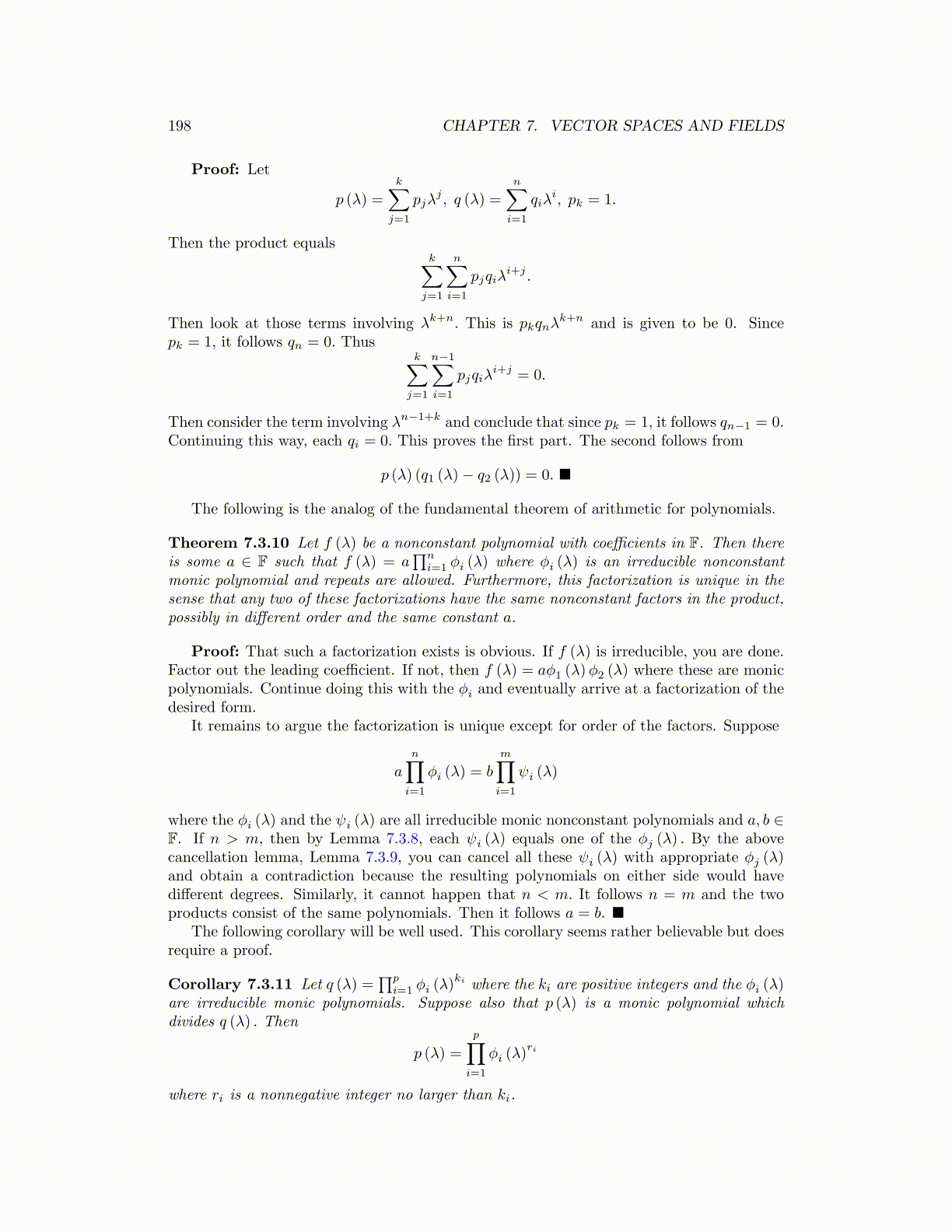
198 CHAPTER 7. VECTOR SPACES AND FIELDS
Proof: Let
p (λ) =
k∑j=1
pjλj , q (λ) =
n∑i=1
qiλi, pk = 1.
Then the product equalsk∑
j=1
n∑i=1
pjqiλi+j .
Then look at those terms involving λk+n. This is pkqnλk+n and is given to be 0. Since
pk = 1, it follows qn = 0. Thusk∑
j=1
n−1∑i=1
pjqiλi+j = 0.
Then consider the term involving λn−1+k and conclude that since pk = 1, it follows qn−1 = 0.Continuing this way, each qi = 0. This proves the first part. The second follows from
p (λ) (q1 (λ)− q2 (λ)) = 0. ■
The following is the analog of the fundamental theorem of arithmetic for polynomials.
Theorem 7.3.10 Let f (λ) be a nonconstant polynomial with coefficients in F. Then thereis some a ∈ F such that f (λ) = a
∏ni=1 ϕi (λ) where ϕi (λ) is an irreducible nonconstant
monic polynomial and repeats are allowed. Furthermore, this factorization is unique in thesense that any two of these factorizations have the same nonconstant factors in the product,possibly in different order and the same constant a.
Proof: That such a factorization exists is obvious. If f (λ) is irreducible, you are done.Factor out the leading coefficient. If not, then f (λ) = aϕ1 (λ)ϕ2 (λ) where these are monicpolynomials. Continue doing this with the ϕi and eventually arrive at a factorization of thedesired form.
It remains to argue the factorization is unique except for order of the factors. Suppose
a
n∏i=1
ϕi (λ) = b
m∏i=1
ψi (λ)
where the ϕi (λ) and the ψi (λ) are all irreducible monic nonconstant polynomials and a, b ∈F. If n > m, then by Lemma 7.3.8, each ψi (λ) equals one of the ϕj (λ) . By the abovecancellation lemma, Lemma 7.3.9, you can cancel all these ψi (λ) with appropriate ϕj (λ)and obtain a contradiction because the resulting polynomials on either side would havedifferent degrees. Similarly, it cannot happen that n < m. It follows n = m and the twoproducts consist of the same polynomials. Then it follows a = b. ■
The following corollary will be well used. This corollary seems rather believable but doesrequire a proof.
Corollary 7.3.11 Let q (λ) =∏p
i=1 ϕi (λ)ki where the ki are positive integers and the ϕi (λ)
are irreducible monic polynomials. Suppose also that p (λ) is a monic polynomial whichdivides q (λ) . Then
p (λ) =
p∏i=1
ϕi (λ)ri
where ri is a nonnegative integer no larger than ki.